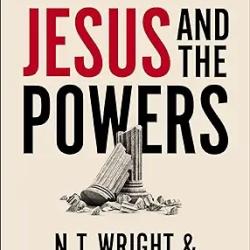| |
The Dunn/Hurtado Dialogue on Jesus-Venerationlarryhurtado | September 19, 2011 at 12:01 pm | Categories: Uncategorized | URL: http://wp.me/pYZXr-cb
(The following are my friend Larry Hurtado’s own reflections on the dialogue)
|
At the annual British New Testament Conference (1-3 September, Nottingham), one of the sessions was a dialogue with my long-time friend, Prof. Jimmy Dunn on “The Veneration of Jesus and the First Commandment.” Dunn and I have been in dialogue on this subject over several years, reviewing each other’s publications and trying to sharpen mutually our perceptions of the issues. This dialogue was for me a welcome opportunity to continue this engagement in live-time.
We chose to label the event a “dialogue” rather than a “debate”, mainly because we agreed that the aim shouldn’t be to score points in some contest, but instead to come at the evidence and issues with a shared concern for understanding things. That may have disappointed some who prefer minor blood-sport to scholarship. No apologies from me.
Dunn’s presentation seemed to me to focus on concerns that devotion to, and beliefs about, Jesus should not be at the expense of the primacy of God, and that Christian faith ought to be genuinely “monotheistic”. These are entirely understandable theological concerns about Christian faith today (with which I am sympathetic), but I was a bit surprised that they seemed to play such a role in a discussion that was to be focused mainly on the evidence of Jesus-devotion in the first-century Christian circles reflected in the NT writings.
In my own presentation, I reviewed briefly the constellation of devotional practices in which Jesus features centrally attested in the NT, noted that they are without precedent or analogy in the ancient Jewish setting (the religious matrix of Christian faith), and reiterated my contention that these phenomena reflect a distinctive and noteworthy “mutation” in ancient Jewish devotion to the one God.
Put another way, the NT writings reflect a distinctive “dyadic” devotional pattern. But it is a “shaped” dyad, Jesus’ significance and place in early Christian devotion rather consistently defined and justified with reference to the will and actions of God (“the Father”). E.g., Philippians 2:9-11 celebrates God’s exaltation of Jesus and the bestowal of “the name above every name”, with the intention that Jesus be given universal acclamation as “Kyrios”.
It remains a source of puzzlement to me that the historical significance of these remarkable devotional practices is not adequately grasped by some. To judge by NT writings, Jesus was not reverenced at the expense of God, but instead as the unique agent and expression of God (e.g., as God’s “Image,” “Son”), and in obedience to the one God, who has designated Jesus as the “Kyrios” to whom this robust cultic reverence is to be given.
In the historical context, it is a novel development: professing the “one God” of Israel and yet also including as rightful (even required) recipient of devotion a distinguishable, second figure. The NT evidences, not dreams of some future time when a messianic figure may be reverenced (as, e.g., in the “Similtudes” of 1 Enoch), but instead a real and dramatic re-formulation of regular devotional practice in historically identifiable circles of early Christians. Given the special significance attached to worshp practice, the programmatic inclusion of Jesus as co-recipient/recipient of their devotion is remarkable.
Of course, these first Christians insisted that they remained true to the “monotheistic” stance inherited from the ancient Jewish tradition. But, judging by the actual way that they practiced their worship and larger devotional life, theirs was a distinguishable form of “monotheistic” practice involving the programmatic inclusion of Jesus along with God.














